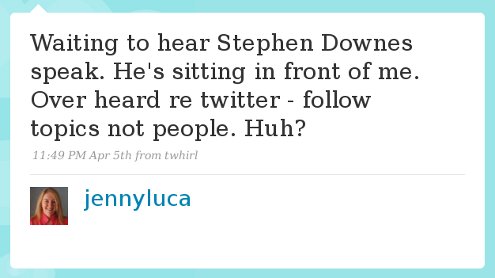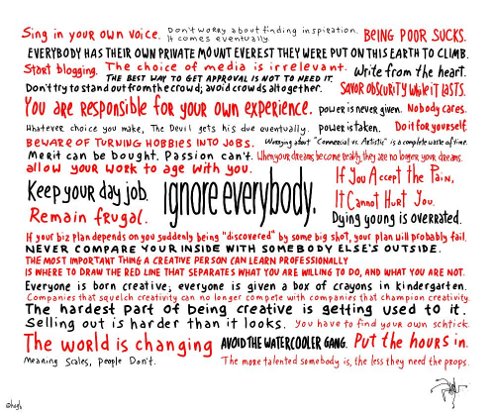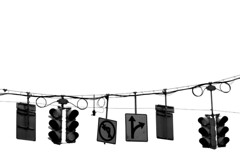Ignore everybody.
There are blog posts I plan in advance and there are those that happen as a result of serendipity and need blogging straight away. This is very much one of the latter. :-p
Earlier this week I was following with interest the tweets of Jenny Luca, an Australian educator, as she sat in the audience during one of Stephen Downes‘ presentations. Before the whole thing even started, she overheard Downes:

In her next tweet she simply wondered how that squared with connectivism, a learning theory of which Downes is an advocate. I thought up several responses, but didn’t have time to get into a debate and so kep them to myself. Jenny’s reflections on the event, if you’re interested, are here. That particular event isn’t the focus of this post. 🙂
Today, during an Easter Sunday afternoon in which I’d run out of things to fill my leisure time, I turned to my feed reader and came across this from Hugh McLeod:

It’s actually a remixed (and, to be honest, improved) version of an original by Patrick Brennan.
These two coming so closely together made me reflect upon my online interactions. Now, before I go any further I need to point out very explicitly and clearly that I greatly value the interactions and conversations I have with individuals. I’m certainly not aiming to devalue that in what I’m about to say.
The power in a network comes from the amplification of individual contributions and connections to make it more than the sum of its parts.
I think this is may be where Downes was coming from in terms of ‘following topics not people’ on Twitter and where McLeod (via Brennan) means r.e. ignore everybody.
- Yes, you need to learn the heuristics of the network.
- Yes, you need to capture the zeitgeist.
- Yes, you have be able to argue for your point of view.
…but when it comes down to it, you need to be your own person, using the network for your own ends. Not in some manipulative, Machiavellian sense, but in a ‘give-and-take’ way that means that the network truly does become more than the sum of its parts. 😀


